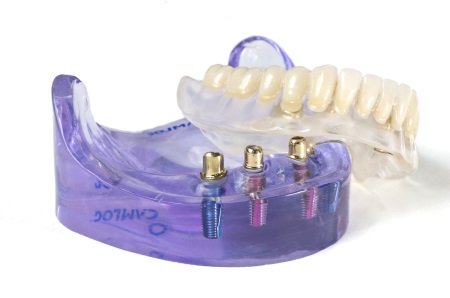Dr. Amit Shah can stabilize your dentures. Here at Creative Smiles, patients are provided with secure and long lasting dentures.
Considering Denture Stabilization?
Denture Stabilization is a great option if you’re looking to regain some confidence and get that smile back while ensuring comfort and practicality.
Compared to normal dentures, the denture stabilization option leaves you with a more secure and long lasting fit that eliminates the need for dental adhesive because the denture is secured to the gums. This option eliminates many patients from being worried about their dentures and offers a superior fit.
Dental Implants can be placed within denture stabilization. You have the option of mini implants or full dental implants. Denture stabilization will offer convenience, practicality, and longevity to your everyday life.

Dental Stabilization: The Basic Procedure

Dental stabilization, or periodontal stabilization, is a process where teeth that have become loose in their supporting bone structure are stabilized using splints. For individuals who have suffered periodontal disease and have lost at least 40% of the supporting bone around their teeth, this procedure can be used to keep the person’s teeth.
There are two types of stabilization processes used – both employ splinting to keep the teeth from moving inside the bone:
- The first process is known as “extra-coronal splinting”. In this process, anesthesia is started then wire or fiber is used to attach the affected tooth to their bone structure and hold them in place.
- The second form of stabilization is known as “intra-coronal splinting”. This form of dental stabilization involves boring into the tooth and adjacent bone structure, then inserting a small rod-like device to hold the tooth steady against the bone.
If a person suspects they might need dental stabilization, their first step should be to consult one of our dental experts. In some cases of advanced periodontal disease, simple treatment may strengthen the bone surrounding the tooth and eliminate the need for the process all together.
Cost estimates are specific to your situation, please call us for your specific Dental Stabilization costs.
